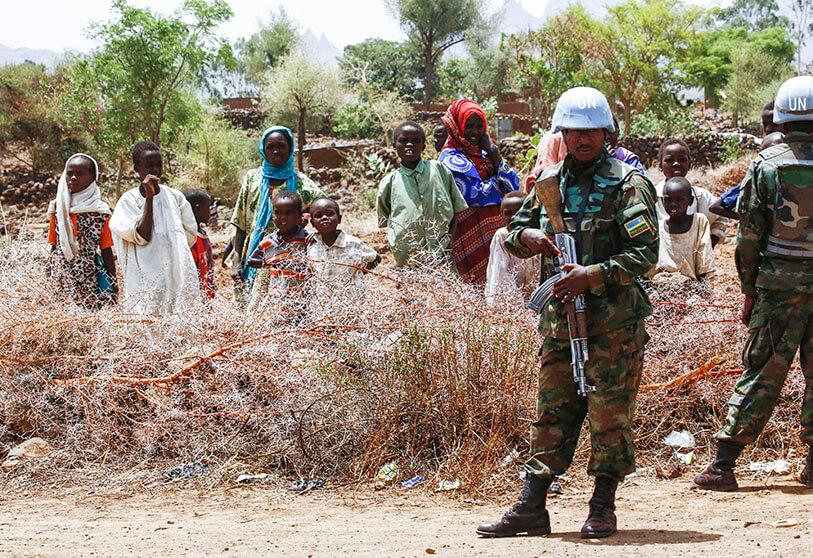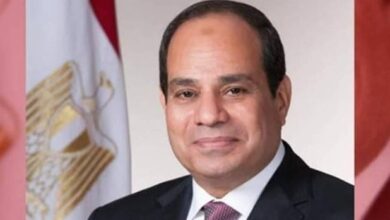ADDIS ABABA – The African Union called on Friday for the formation of an inclusive transitional government in Libya, saying it could not recognize the rebels as sole legitimate representatives of the nation while fighting continued.
The snub showed how much influence fallen Libyan leader Muammar Qadhafi had on the bloc – he was one of its main financiers and presented several African leaders with large sums of money.
The stand was also at odds with the dozens of countries that have announced their recognition of the National Transitional Council, whose fighters ousted Qadhafi from his Tripoli power base this week and forced him to go on the run.
Perhaps most significantly, the Arab League backed the rebels this week, after suspending Libya's membership when Qadhafi's forces launched a crackdown in February to try to prevent an uprising from spreading in the east of the country.
Only three heads of state attended an emergency summit of the AU Peace and Security Council in Addis Ababa, which brought together 15 members who officials said were divided almost equally over whether to recognize the rebels.
"The AU peace and security council is weighted with countries who have backed Qadhafi in the past or owe him favors. They will not recognize the NTC," one senior Western diplomat told Reuters before the AU's communique was read out.
One official who was at the talks told Reuters a number of delegates denounced the NTC as "stooges of NATO and the West."
As well as calling for an inclusive government which would theoretically include Qadhafi supporters, the communique urged a democratic transition and support for the organization of elections and a national reconciliation process.
"(The council) strongly reaffirms that the AU stands with the people of Libya and encourages all the parties in Libya to come together and negotiate a peaceful process that would lead to democracy," said Ramtane Lamamra, AU Commissioner for Peace and Security.
AU FEELS SIDELINED OVER LIBYA CRISIS
Analysts said the AU may still be angered by a perception it was sidelined and ignored by Western countries when it tried to mediate between Qadhafi and the rebels.
The AU proposed a road map for a change in leadership in Libya that has been largely ignored by Western powers – a rebuff analysts said has angered many African states with long ties to Qadhafi.
"The African Union has been pretty consistent at wanting to be recognized as an integral player in mediating the Libyan crisis," said Mark Schroeder of US think-tank Stratfor.
"These resistant members of the AU peace and security council are probably being difficult to compel some recognition of their place at the table in helping to resolve the Libyan crisis," Schroeder told Reuters.
The council members are Zimbabwe, Kenya, Equatorial Guinea, Nigeria, Libya, Namibia, South Africa, Djibouti, Rwanda, Burundi, Chad Benin, Ivory Coast, Mali and Mauritania.
South African leader Jacob Zuma, who has been a vocal Qadhafi supporter, said the pan-African bloc would not recognize the rebels while fighting was still going on. The NTC has won recognition from more than 40 countries, and AU officials told Reuters 20 of them were African.
"If there is fighting, there is fighting. So we can't stand here and say this is the legitimate (government) now. The process is fluid. That's part of what we inform countries – whether there is an authority to recognize," Zuma told reporters.
Zuma led an AU mediation effort in Libya but his two personal visits this year produced no meaningful results.
Several Western diplomats, who were at AU headquarters to observe the talks, said the bloc risked rendering itself irrelevant by taking a stance at odds with the Arab League and several of its own member states.
"They had a chance today to claw back some respect and relevance after utterly failing in their mediation attempts in Libya," a senior Western official told Reuters.
"They should have said they would work for a peaceful transition. Instead they have sought to include elements of the Qadhafi regime in a new government. There's a risk the international community will stop listening."
Two of the three heads of state at the summit, Uganda's Yoweri Museveni and Zuma, are vocal supporters of Qadhafi. Zimbabwe is one of the few states strongly in Qadhafi's camp and is seen as a place where he may seek shelter.
The African Union was founded at a summit in Qadhafi's home town, Sirte, on 9 September, 1999. State-owned Afriqiyah Airways marks that date by painting the motif "9.9.99" on the tail of each of its jets.




